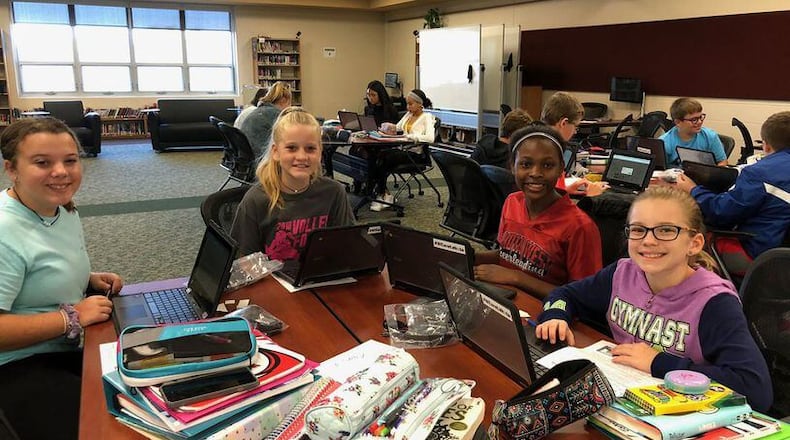Lakota officials said the last grade grouping of students, kindergarten and first grade, now have greater access to learning laptops.
And new touchscreen Chromebooks have been assigned to each second grader “to empower their personalized learning journey,” said district officials.
“In an ever-increasing digital world, we are thankful to be able to provide dedicated devices to each of our students to purposefully and equitably support their learning,” said Lakota Chief Technology Officer Todd Wesley.
In fall 2018, Lakota launched a multi-year effort to open laptop learning to thousands of high school and middle school students by providing specially designed, security-restricted laptops that students could use in the classroom or at home.
At the time, only Butler County’s Talawanda Schools had previously embarked on wide-spread distribution of laptops for secondary grade level students.
Also in recent years, Lakota has developed widely acclaimed Cyber Academy programs, one of only two districts in southwest Ohio, at its Lakota East and Lakota West high schools and elective computer coding classes in middle school grades.
Since 2018, the district’s digital learning strategy has included the recycling of used laptops down to younger grades as a cost-saving measure, said officials.
Most recently, K-1 students also received touchscreen Chromebooks passed down from the higher grades.
Lakota’s early childhood schools now have a cart of Chromebooks for each classroom, with a dedicated device for each student’s use while in school, duplicating the laptop access of students in grades 3-6.
Students in grades 7-12 continue to have their own dedicated device for school and outside of school.
Missy Alexander, principal at Liberty Early Childhood School, said the newly expanded program “means that teachers no longer have to coordinate when they can get and use devices to support learning in their classrooms.”
“It also gives teachers access to new programs that can be used for enrichment or for extra practice on skills students have already learned,” said Alexander.
The laptops only supplement traditional classroom learning, not supersede such instruction, said Wesley.
“This isn’t about kids being on computers all day long,” he said.
“Teachers determine when and how long students access these learning devices. This will align with instructional goals, with approved technology being purposefully used to empower student learning.”
About the Author
